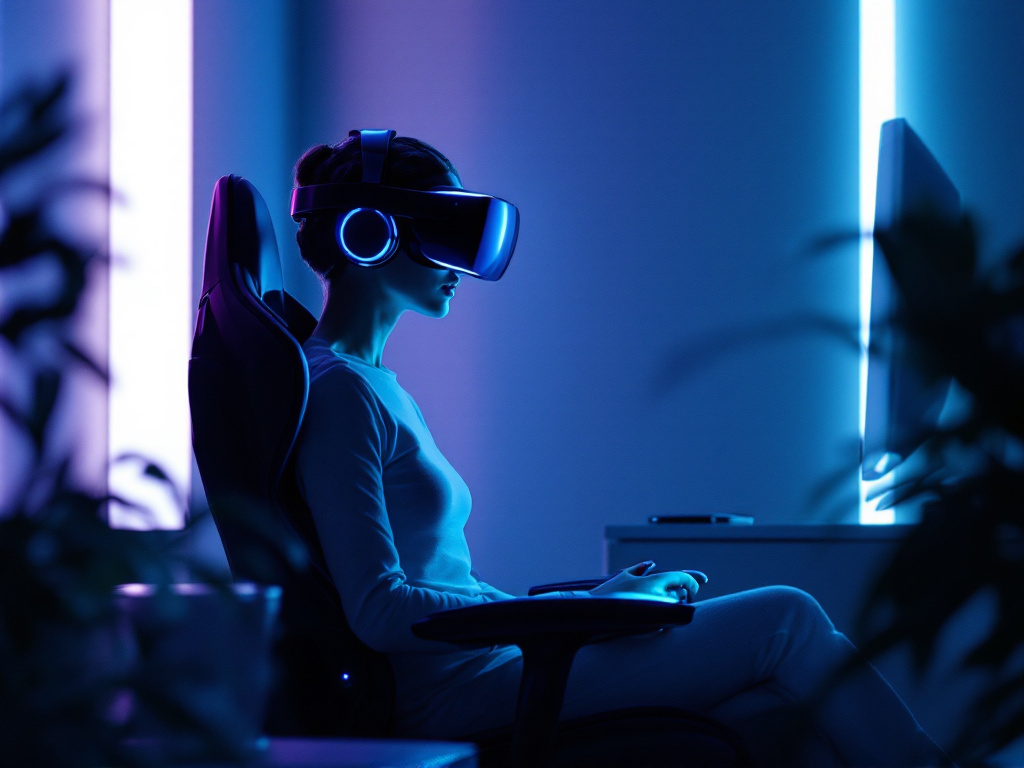Introduction
The world of game development is constantly evolving, with new technologies and innovations emerging every year. One of the most exciting developments in recent years has been the integration of Artificial Intelligence (AI) into game development. From generating interactive videos to creating new content, AI is revolutionizing the way games are developed and played.
In this blog post, we’ll delve into the world of AI-generated games, exploring its benefits, drawbacks, and future prospects. We’ll also discuss the four main categories of AI-generated games: Accessibility & Democratization, Enhanced Efficiency & Speed, Innovation & Novel Gameplay, and Technical Limitations. Additionally, we’ll address ethical and copyright issues that are relevant to AI-generated games.
Understanding AI-Generated Games
Before we dive in, let’s define what AI-generated games are. These games use machine learning algorithms to create new content, such as levels, characters, or even entire game worlds. The process involves training the AI on a vast dataset of existing games, which enables it to learn patterns and generate new content based on those patterns.
The Four Main Categories of AI-Generated Games
There are four main categories of AI-generated games: Accessibility & Democratization, Enhanced Efficiency & Speed, Innovation & Novel Gameplay, and Technical Limitations. These categories highlight the various ways in which AI can be used in game development.
Accessibility & Democratization
This category focuses on making game development more accessible to aspiring creators. By automating tedious tasks and accelerating development cycles, developers can create games faster and at a lower cost. For example, AI-powered tools can help generate 3D models, textures, and environments, reducing the need for manual modeling and painting.
- Benefits : Increased accessibility and democratization of game development, reduced costs and time-to-market.
- Drawbacks : Limited creativity and originality, potential loss of human touch.
Enhanced Efficiency & Speed
In this category, we explore how AI can speed up game development by automating repetitive tasks and analyzing vast amounts of data to identify patterns and optimize gameplay. For instance, AI-powered analytics tools can help developers identify areas where players are getting stuck or frustrated, allowing them to make data-driven decisions about level design and difficulty progression.
- Benefits : Increased efficiency and speed, improved player engagement and retention.
- Drawbacks : Dependence on data quality and analysis, potential bias in decision-making.
Innovation & Novel Gameplay
The final category is all about innovation and novel gameplay. This involves using AI to generate unexpected and creative game content that pushes the boundaries of what’s possible in game development.
- Benefits : New and innovative gameplay experiences, increased creativity and originality.
- Drawbacks : Limited understanding of human psychology and behavior, potential discomfort or frustration for players.
Technical Limitations
Finally, there are technical limitations to consider when it comes to AI-generated games. Since AI relies on existing data, it may struggle with complex gameplay mechanics or require vast computational resources to generate content.
- Benefits : Improved accuracy and consistency, reduced development time.
- Drawbacks : Limited domain knowledge, potential dependence on hardware and software infrastructure.
Ethical & Copyright Issues
As AI-generated games become more prevalent, ethical and copyright issues come to the forefront. Using copyrighted material for training AI models can lead to IP infringement, and the use of AI-generated content raises questions about authorship and ownership.
- Benefits : Improved creativity and originality, new business opportunities.
- Drawbacks : Potential loss of human touch and creative control, copyright and licensing issues.
The Future of AI in Game Development
So, what does the future hold for AI-generated games? According to experts, AI will play a key role in game development, augmenting human creativity rather than replacing it. By working alongside developers, AI can help create new and innovative gameplay experiences that were previously impossible.
In conclusion, AI-generated games are revolutionizing the world of game development. From accessibility and democratization to innovation and novel gameplay, there are many benefits and drawbacks to consider. As we move forward, it’s essential to address these challenges head-on and ensure that AI is used in a way that enhances the gaming experience for all.
Additional Resources
If you’d like to learn more about AI-generated games, check out the following resources:
- [Game Development with AI: A Beginner’s Guide](https://www Udemy.com/ course/game-development-with-ai/)
- The Future of Game Development: AI and Machine Learning
- AI in Game Development: A Comprehensive Review
By embracing the power of AI, we can create games that are more accessible, efficient, and innovative than ever before. The future of game development is exciting, and we’re honored to be a part of it.
Frequently Asked Questions
Q: Can I use AI-generated games for commercial purposes? A: Yes, but ensure you have the necessary permissions and licenses to do so.
Q: Will AI replace human developers in the game industry? A: No, AI will augment human creativity and capabilities, rather than replace them.
Q: How can I get started with AI-generated games? A: Start by learning about machine learning and game development, explore AI-powered tools and platforms, and experiment with different techniques and approaches.
Conclusion
AI-generated games are revolutionizing the world of game development. By understanding the benefits, drawbacks, and future prospects of AI-generated games, we can unlock new possibilities for creativity, innovation, and engagement. Whether you’re a developer, artist, or gamer, embracing the power of AI can help create a more immersive, interactive, and enjoyable gaming experience.

